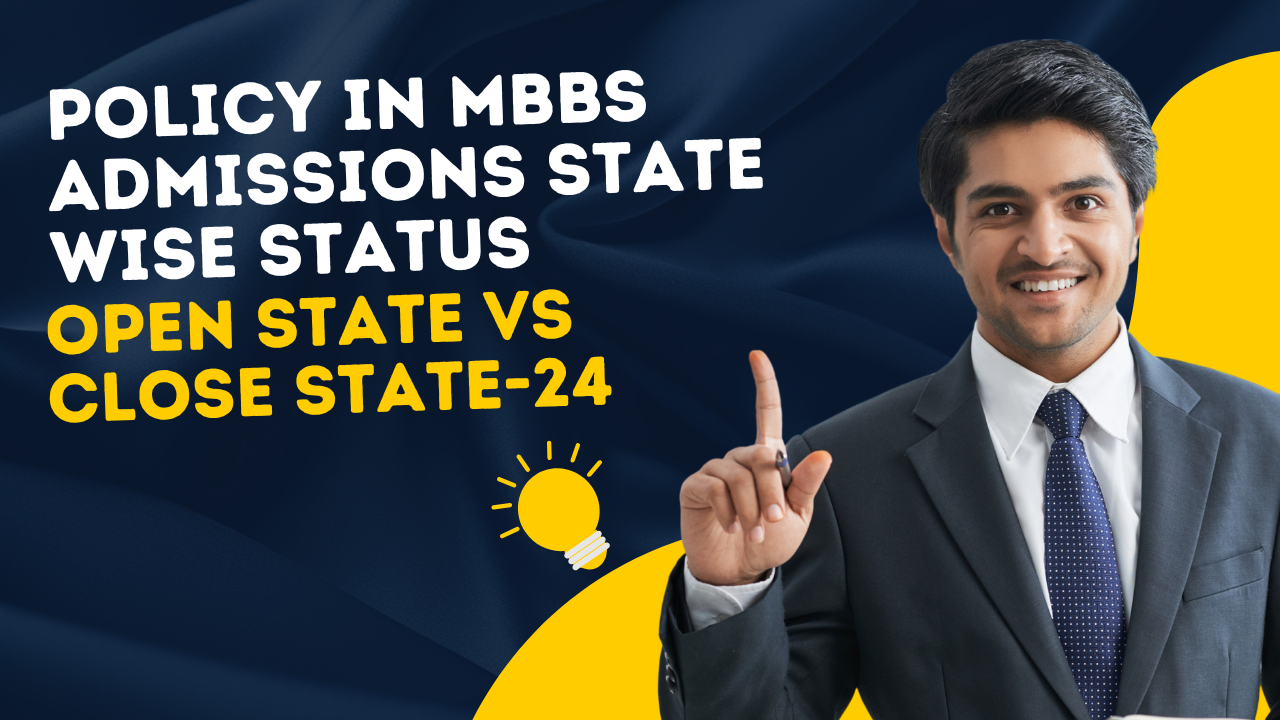COMPARISON BETWEEN AYUSH AND MBBS ADMISSION PROCESS
The healthcare education system in India offers diverse pathways for students aspiring to become healthcare professionals. Two prominent routes are MBBS (Bachelor of Medicine and Bachelor of Surgery) and AYUSH courses, which include Ayurveda, Yoga and Naturopathy, Unani, Siddha, and Homeopathy. Both paths lead to rewarding careers in medicine, but they have distinct admission processes and educational frameworks.

Understanding AYUSH and MBBS
- MBBS: This is the conventional medical degree focusing on modern Western medicine. It includes extensive study in anatomy, physiology, pathology, pharmacology, and clinical practice.
- AYUSH: This stream encompasses traditional Indian medicine and alternative healthcare systems. The key branches are:
- BAMS: Bachelor of Ayurvedic Medicine and Surgery
- BHMS: Bachelor of Homeopathic Medicine and Surgery
- BUMS: Bachelor of Unani Medicine and Surgery
- BSMS: Bachelor of Siddha Medicine and Surgery
- BNYS: Bachelor of Naturopathy and Yogic Sciences
Admission Process for MBBS
Eligibility:
- Completion of 10+2 with Physics, Chemistry, Biology/Biotechnology, and English.
- Minimum aggregate of 50% in 12th standard (40% for reserved categories).
- Minimum age of 17 years.
Entrance Exam: NEET (National Eligibility cum Entrance Test): A single national-level examination conducted by the National Testing Agency (NTA) for admission to MBBS programs across India. Counseling and Admission: All India Quota Counseling: Conducted by the Medical Counseling Committee (MCC) for 15% of seats in government medical colleges and 100% seats in central institutions (like AIIMS and JIPMER). State Quota Counseling: Conducted by respective state authorities for 85% of seats in state government colleges. Private and Deemed Universities: Separate counseling procedures but also based on NEET scores.
Admission Process for AYUSH :
Eligibility:
- Similar to MBBS, completion of 10+2 with Physics, Chemistry, Biology, and English.
- Minimum aggregate of 50% in 12th standard (40% for reserved categories).
- Minimum age of 17 years.
Entrance Exam: NEET is also used for admission to AYUSH courses.
Counseling Process:
- Registration: Candidates must register online for the counseling process conducted by Ayush Admission Central Counseling Committee (AACCC) or respective state authorities.
- All India Quota Counseling: Conducted by AYUSH Admissions Central Counseling Committee (AACCC) for 15% of seats in government AYUSH colleges and 100% seats in central universities.
- State Quota Counseling: Conducted by respective state AYUSH authorities for 85% of seats in state government colleges.
- Private AYUSH Colleges: Separate counseling processes based on NEET scores.
UNDERSTANDING DIFFERENT AYUSH COURSES
- Bachelor of Ayurvedic Medicine and Surgery (BAMS)
BAMS is an undergraduate degree that focuses on Ayurveda, one of the oldest holistic healing systems. Ayurveda emphasizes the balance of bodily systems using diet, herbal treatment, and yogic breathing
- Bachelor of Homeopathic Medicine and Surgery (BHMS)
BHMS is an undergraduate degree in Homeopathy, an alternative medicine system based on the principle of treating ‘like with like’ (similia similibus curantur). It uses highly diluted substances to trigger the body’s natural healing process.
- Bachelor of Unani Medicine and Surgery (BUMS)
BUMS is an undergraduate degree in Unani medicine, a traditional system of healing based on the principles taught by Hippocrates and developed further by Arab and Persian scholars. Unani medicine focuses on balancing the body’s humors
- Bachelor of Naturopathy and Yogic Sciences (BNYS)
BNYS is an undergraduate degree integrating Naturopathy and Yogic Sciences. Naturopathy focuses on the body’s self-healing process through natural therapies, while Yoga emphasizes physical, mental, and spiritual practices.
- Bachelor of Siddha Medicine and Surgery (BSMS)
BSMS is an undergraduate degree focusing on Siddha medicine, a traditional system of healing developed in South India. Siddha medicine emphasizes the use of herbs, minerals, and diet to maintain health and treat illness. 








